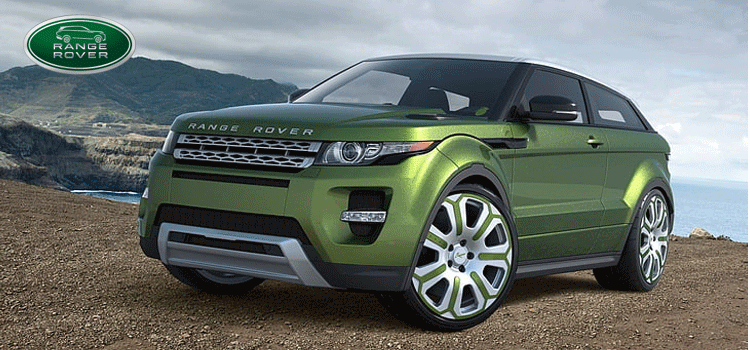
Introduction:
To truly enhance your vehicle’s efficiency and lifespan, focusing on optimizing the Range Rover Evoque Engine is important. This engine provides an incredible blend of power and elegance, but mastering its fine-tuning can tackle and prevent common issues. By understanding the complexities of performance optimization, you not only boost your driving experience but also extend the life of your Range Rover Evoque Engine. Embrace the art of engine care, and let your Evoque’s power shine to its fullest potential. The journey to top performance starts with a well-tuned engine, guaranteeing a smoother, more exciting ride every time.
Range Rover Evoque Engine Specifications:
The Range Rover Evoque Engine is famous for its powerful performance and the latest technology. Depending on the model year, it may have a 2.0-liter turbocharged four-cylinder engine that generates around 246 horsepower and 269 lb-ft of torque. For those choosing higher trims or performance variants, the engine might be tuned to deliver even more power, with some versions producing up to 296 horsepower.
These engines include the latest technologies such as variable valve timing and direct fuel injection, which contribute to their incredible fuel efficiency and performance. However, despite these improvements, owners often face Problems with Range Rover Evoque Engine that can impact the vehicle’s overall performance. Tackling these issues proactively can cause remarkable improvements in engine efficiency and reliability.
Regular Maintenance:
One of the most effective ways to improve the Range Rover Evoque Engine is through regular maintenance. This includes timely oil changes, air filter replacements, and spark plug inspections. Routine maintenance helps to guarantee that the engine operates smoothly and minimzes the likelihood of facing common Problems with Range Rover Evoque Engine.
Oil changes should be done every 5,000 to 7,500 miles, depending on the type of oil used and driving situations. Using high-quality oil and filters can boost engine performance and longevity. Replacing the air filter at routine intervals guarantees optimal airflow, which is necessary for efficient combustion and lessens strain on the engine.
Tackling common Problems with the Range Rover Evoque Engine:
Owners of the Range Rover Evoque Engines might face specific issues that can impact performance. General Problems with Range Rover Evoque Engines are turbocharger failure, timing chain issues, and cooling system malfunctions. Tackling these problems quickly can prevent more severe damage and confirm that the engine performs at its best.
If you notice a reduction in power or strange noises from the engine, it’s important to have it inspected by an expert technician. Turbocharger issues can often be resolved by checking for leaks and confirming proper lubrication. Timing chain problems might need a timing chain replacement or adjustment to restore proper engine timing. Guaranteeing that the cooling system is functioning properly helps to prevent overheating, which can cause severe engine damage.
Upgrading Engine Components:
For those wanted to boost the performance of the Range Rover Evoque Engines, upgrading special engine components can be beneficial. Performance upgrades like high-flow air filters, aftermarket intercoolers, and upgraded exhaust systems can boost engine efficiency and power output. These modifications can help tackle some of the Problems with the Range Rover Evoque Engines by improving airflow and cooling.
However, it’s necessary to choose upgrades that are harmonious with the engine and to have them installed by professionals. Incorrect installations or incompatible components can cause further problems with the Range Rover Evoque Engines, potentially negating the benefits of the upgrades.
Observing Engine Performance:
Regularly observing your Range Rover Evoque Engines performance is important for spotting and tackling issues before they arise. Utilizing diagnostic tools to scan engine codes and performance metrics offers invaluable insights into your engine’s health. If you notice any irregularity or warning lights, it’s necessary to tackle them quickly. By taking swift action, you can avert more severe damage and confirm your engine continues to deliver excellent performance. Remember, a proactive approach today can save you from expensive repairs tomorrow and keep your Range Rover Evoque Engines running smoothly for miles to come.
Keeping Software Update:
Advanced vehicles, including the Range Rover Evoque, depend heavily on software to manage engine performance. Software updates from the manufacturer can tackle several issues and boost engine efficiency. If you encounter any problems with the Range Rover Evoque Engines, like erratic performance or poor fuel economy, it is worth checking if there are any available software updates.
Keeping your vehicle’s software up-to-date can resolve minor issues and optimize engine performance. Manufacturers often release updates to fix known issues and improve vehicle functionality, so staying informed about these updates is important for maintaining your Range Rover Evoque Engine’s performance.
Conclusion:
Enhancing your Range Rover Evoque Engines is all about staying ahead with regular maintenance, tackling common Problems with Range Rover Evoque Engines, and considering performance upgrades. By being proactive and attentive, you can dramatically improve your engine’s performance and reliability. Tackling issues early and making smart upgrade choices will confirm a smoother, more efficient driving experience. Remember, the secret to lasting performance and driving satisfaction lies in a well-maintained engine. Improve your journey with a finely-tuned Range Rover Evoque Engines and enjoy every drive to its fullest.
FAQs:
How often should I change the oil in my Range Rover Evoque Engine?
Change the oil every 5,000 to 7,500 miles.
What are common Problems with the Range Rover Evoque Engine?
Common problems include turbocharger failure, timing chain problems, and cooling system malfunctions.
Can upgrading engine components enhance performance?
Yes, upgrades like high-flow air filters and upgraded exhaust systems can enhance performance.
Why is regular software updating important for my Range Rover Evoque Engine?
Software updates can fix issues and boost engine efficiency.
What should I do if I notice less power or unusual noises from the engine?
Have the engine checked by a professional technician immediately.


